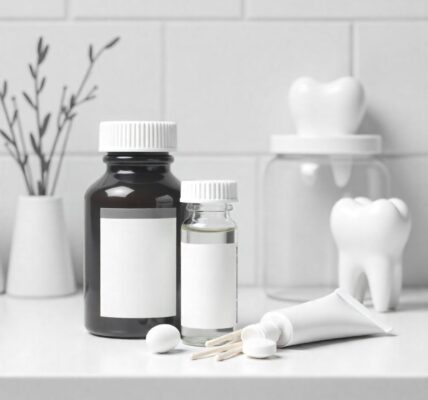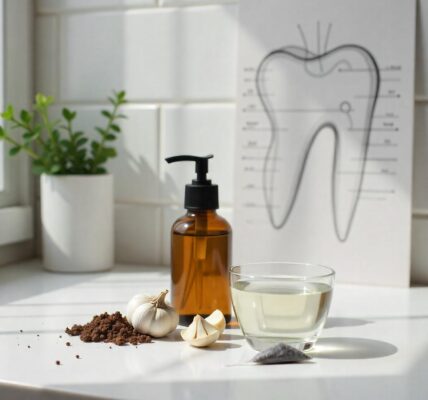Toothache can disrupt your day with sharp pain, dull aches, or throbbing discomfort. Fortunately, there are several effective ways to alleviate the pain quickly. Whether caused by cavities, gum inflammation, or minor dental injuries, the key is choosing methods that provide immediate and lasting relief. Below, we explore practical solutions you can use to get rid of a toothache swiftly.
Understanding Toothache and Its Causes
A toothache occurs when the nerves within the tooth or surrounding tissues become irritated. This discomfort can stem from issues such as cavities, dental infections, gum disease, or even habits like grinding teeth. Common causes include:
- Cavities: Decay that exposes inner layers of the tooth.
- Gum Irritation: Often the result of plaque buildup or gum disease.
- Cracked Teeth or Fillings: These expose nerve endings, causing swelling and pain.
- Grinding or Clenching: Stress or sleep-related habits that weaken enamel over time.
Recognizing the underlying cause is essential; while quick remedies can soothe the pain, addressing the root problem ensures long-term relief.

Quick Solutions for Toothache Relief
1. Saltwater Rinse
A saltwater rinse is a simple and effective way to reduce inflammation and clean the affected area. Salt helps eliminate bacteria, promoting healing.
- How to Use: Dissolve half a teaspoon of salt in a glass of warm water. Swish it around your mouth for 30 seconds before spitting it out. Repeat every few hours for the best results.
2. Cold Compress
Applying a cold compress to the outside of your face can help numb the pain and reduce swelling.
- How to Apply: Wrap an ice pack or a bag of frozen vegetables in a thin cloth. Hold it against your cheek near the affected tooth for 15 minutes. Wait for 10 minutes before reapplying.
3. Over-the-Counter Pain Relievers
Using non-prescription pain relievers can provide near-instant relief. Ibuprofen or acetaminophen works well for reducing both pain and swelling.
- Dosage: Follow the instructions on the packaging and avoid exceeding the recommended dose. If pain persists despite medication, consult a dentist.
4. Clove Oil
Clove oil contains eugenol, a natural anesthetic and antimicrobial agent. It numbs the affected area and fights bacteria contributing to inflammation.
- How to Use: Dab a cotton swab with diluted clove oil (mix with a few drops of carrier oil if sensitive) and apply it to the sore area. Avoid swallowing the oil.
5. Hydrogen Peroxide Rinse
Hydrogen peroxide helps minimize bacteria and inflammation, especially when an infection contributes to toothache.
- How to Rinse: Dilute 3% hydrogen peroxide with equal parts water. Swish it in your mouth for 30 seconds and spit it out. Do not swallow.
6. Garlic Paste
Garlic has antimicrobial properties that can reduce bacteria in the mouth. It also contains compounds that alleviate pain naturally.
- How to Prepare: Crush a fresh garlic clove to form a paste. Apply the paste to the affected tooth and gum. Rinse thoroughly after a few minutes.
7. Peppermint Tea Bags
Peppermint has a natural cooling effect that can provide soothing relief for a toothache.
- How to Use: Steep a tea bag in warm water and then allow it to cool slightly. Place the bag near the painful tooth for 10–15 minutes.
At-Home Practices for Lasting Comfort
While quick remedies are essential, maintaining basic dental care practices helps reduce irritation and prevent worsening pain.
1. Maintain Gentle Oral Care
Brush using a soft-bristled toothbrush and fluoride toothpaste, focusing on removing food debris without harming sensitive gums or teeth.
2. Avoid Triggers
Stay away from extremely hot, cold, or sugary foods, which can aggravate pain.
3. Elevate Your Head While Resting
Keeping your head raised prevents blood pressure from building in your mouth, which can intensify pain sensations.
4. Stay Hydrated
Drink plenty of water to keep the oral environment clean and reduce the buildup of bacteria.

When to Visit a Dentist
While quick remedies can alleviate symptoms, some situations call for immediate dental care. Seek professional advice if:
- Pain persists longer than two days.
- There is visible swelling or fever.
- You have difficulty chewing, biting, or opening your mouth fully.
- The pain is sharp or radiates to your jaw and ear.
Treatments like fillings, root canals, or antibiotics may be necessary, depending on the underlying issue.
Preventing Future Toothaches
Preventing toothaches is far easier than managing their pain. Follow these tips to keep your oral health in top condition:
- Brush twice daily and floss at least once.
- Limit sugary foods and beverages, which encourage plaque buildup.
- Schedule regular dental checkups to catch minor issues before they worsen.
- Use a mouthguard if you grind your teeth at night.
Final Thoughts
Toothaches can be incredibly disruptive, but with the right steps, you can manage and alleviate pain quickly. Treatments like saltwater rinses, clove oil applications, or over-the-counter pain relievers provide instant comfort while complementing at-home oral care practices.
Remember, treating the symptoms is only half the battle—addressing the root cause with professional guidance ensures the health and longevity of your teeth. Take control of your oral care today and eliminate toothache discomfort effectively!





